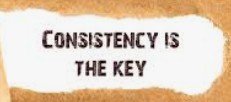Whom to Blame?
Things are going differently than your plan. Things are getting worse and not getting enough growth. The health support system is not functioning properly. People who have a deep love for you depart from you. Whom to blame? Who is accountable for your failure?
In all such situations people start a blame game. The blame game is when people blame each other for a mistake or problem. Blame the Government, Society, subordinates etc. Blame implies that we are not accountable, and instead, the reasons will always be external. The act of blaming results in less work because we don’t have to be held accountable and focus on blame rather on solutions.
Why Blame Game?
It’s easier and quicker to conclude by blaming others. It’s common psychology to criticize other people and not take responsibility for failures. People want to control others or subordinates or show them you as a perfectionist. It becomes a cycle that avoids responsibility and accountability as people try to protect their reputation and prevent guilt.
Imagine taking a driver’s test, for instance. If you pass, people often show their success and take full credit – I studied hard and am a good driver naturally. When you fail the same test, people begin to look for other reasons, such as bad weather, the issues in the car, lack of sleep and so on.
Consequences
Of course, there are those who use blaming to make others feel like victims. People are not able to realize that they have closed all the doors for improvement by blaming others. Now let’s talk about the negative consequences for everyone involved, including:
· Personal Growth
It’s evident that we’re losing the game by blaming others, which is preventing us from growing and improving. Blaming others serves as a form of defense. People are spending too much time constantly defending themselves, which is stopping all the welcome changes that are needed for improvement.
· Relationships
It creates tension and resentment in a relationship, and its possible attention or focus can be diverted away from the original problem.
· Individuals
People may become defensive, isolated, and distrustful. Especially when the other side won’t have any fault. It would create pain and exhaustion and can make people feel small and powerless.
· Organizations
Blame can lead to loss of faith from the organization environment. It develops negative vibes and spoils the organization environment. Sometimes it impacts organization culture badly.
Benefits of keeping yourself away from Blame Game.
Change how you look at the mistakes or any issues. Imagine if people start acknowledging what went wrong and accept mistakes gracefully by apologising. Remember, no one can reach the peak without making any mistake. It’s a part of learning and enhancement. Even great leaders or any great person who succeeds in their profession must have made multiple mistakes. Just accept it and do retrospection, what went wrong, where were you wrong and how this can improve in the next attempt. Once people are able to understand the weak areas and start working to do it in a better way. Improvement won’t be achieved in the first attempt. Think of any sportsman, they make many mistakes and keep trying to overcome the challenges and over the period they become star players.
Most of the successful people accept their mistake and take complete ownership of their actions. For them, blame games are not an option, they always focus on solutions. The moment you take the ownership of your actions. They spend their time on the result rather than on mistakes. That is the quality of good leaders. One example is Gandhiji. In his Autobiography, The Story of “My Experiments with Truth”, he has accepted his mistakes he committed in South Africa or in London and keeps working for the improvement. He has accepted all his failures gracefully.
To conclude, if you want to keep improving and attain success, start accepting your mistakes. Keep yourself focused on solutions rather than blaming others.





you are in reality a good webmaster The website loading velocity is amazing It sort of feels that youre doing any distinctive trick Also The contents are masterwork you have done a fantastic job in this topic